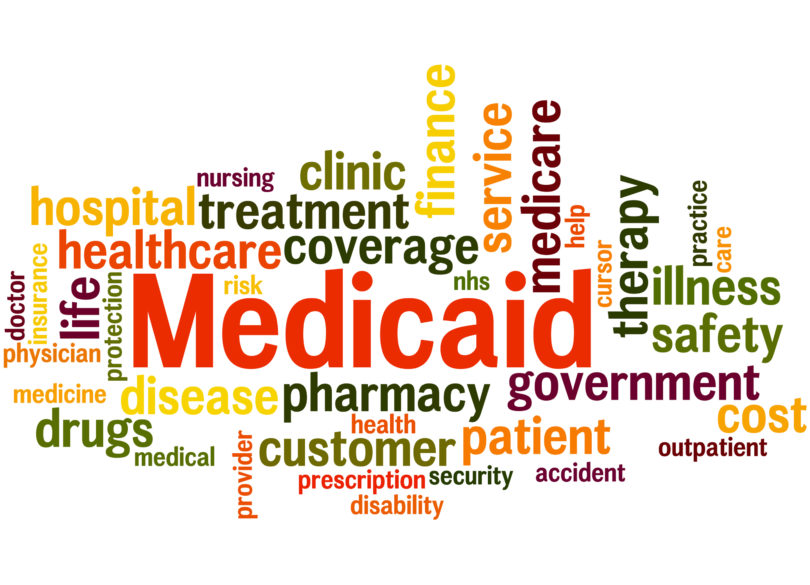By Joe Atkins
OXFORD – Embedded in Mississippi’s political leadership since time immemorial regarding Medicaid and other social programs is the attitude that somebody somewhere is going to get a free ride.
Back in the 1960s, U.S. Sen. John Stennis and Congressmen Jamie Whitten and Thomas G. Abernethy, all Mississippi Democrats, fought tooth and nail against funding for food programs and other government assistance to the poor and needy, like the Head Start preschool program. The federal government adopted the Medicaid program in 1967. Mississippi waited until 1969.
Mississippi is one of the 12 states in the nation – most of them in the U.S. South – that thus far have refused a largely federally funded Medicaid expansion under the Affordable Care Act (ACA).
Today, however, a strong and growing push toward expansion of the Medicaid program is underway in the nation’s perennially poorest and unhealthiest state, a push led by clergy and judiciary leaders as well as a growing number of business leaders.

“We are in a crisis,” says Perry C. Perkins Jr. of Working Together Mississippi (WTM) and the Industrial Areas Foundation. WTM is doing grassroots work across the state to expand health care options for Mississippians. “Why? Our politics are totally politicized. Too many Mississippians earn too much to qualify for Medicaid but too little to qualify for tax credits that would reduce their health insurance costs.”
A letter supporting Medicaid and issues like post-partum care for needy mothers signed by 350 clergy and other local leaders recently went out to the state’s governor and legislature. Perkins’ Working Together Mississippi plans to expand that number to 600 clergy with a thousand or more local leaders participating in so-called “Civic Academy” discussion sessions. He and others are urging citizens to call or write state leaders and their representatives in the legislature.
In a June 6 column published in the Northeast Mississippi Daily Journal in Tupelo, state Senator Chad McMahon, a Republican representing Lee and western Itawamba counties, called for a serious discussion of Medicaid expansion.
“I’m hearing from farmers, who are small business owners employing as many as 10 employees, that want health insurance for their families and their employees,” McMahon wrote. “Some of the largest corporations in the state are located in the district I represent, and they are expressing their desire to expand Medicaid for their employees and their families.”
McMahon, who hasn’t yet taken an official position on the issue, said that Medicaid is not a government welfare program – indeed two-thirds of those who’d benefit from an expansion are employed but get no insurance from their employer – but rather a “government insurance program” that offers minimum coverage. Already one out of three Mississippians receive Medicaid.
“Sustainable and affordable access to healthcare for Mississippians is important to me,” McMahon wrote. “Whether that healthcare or insurance is public or private is the field of discussion. I would prefer a private sector solution if one is available that is affordable, sustainable, and offers access to world class healthcare.”
Many Mississippians have anything but “world class healthcare.”
The state ranks 1st in kidney disease, death from pneumonia and flu, strokes and cancer. It ranks 50th in COVID-19 vaccinations, and number 1 in infant mortality and problem pregnancies. Perry Perkins comes to “Civic Academy” meetings armed with such statistics from the Kaiser Foundation and other sources.
In a rural state, at least a half-dozen of 19 publicly owned hospitals are in poor financial health, according to a 2017 state auditor’s report. Five rural hospitals have already closed.
Perkins says expanding Medicaid would reach 300,000 Mississippians plus pump $690 million of federal dollars into the state’s economy. Each state gets a 90 percent federal match for the expansion. Uncompensated care, a huge issue for rural and other hospitals, would decline by as much as 50 percent.
Politicians like McMahon are starting to listen, and legislative hearings are planned for this summer. Next door, Louisiana passed a Medicaid expansion five years ago.
However, state Attorney General Lynn Fitch was one of 18 state attorneys general – all Republicans – to ask the U.S. Supreme Court to throw out the ACA. The court this month refused. Mississippi House Speaker Philip Gunn is busy these days pushing elimination of the state income tax just five years after the Legislature passed the largest tax cut in the state’s history. Mississippi Gov. Tate Reeves recently declared the state would no longer accept federal COVID-19-related unemployment benefits.
Still, Perkins remains optimistic. “There is movement. (Most) Mississippi voters support Medicaid expansion. The clergy are pushing it. Business people, too.”
(Joe Atkins is a veteran journalist and professor of journalism at the University of Mississippi. He attends St. John’s Catholic Church in Oxford and can be reached at jbatkins3@gmail.com.)
